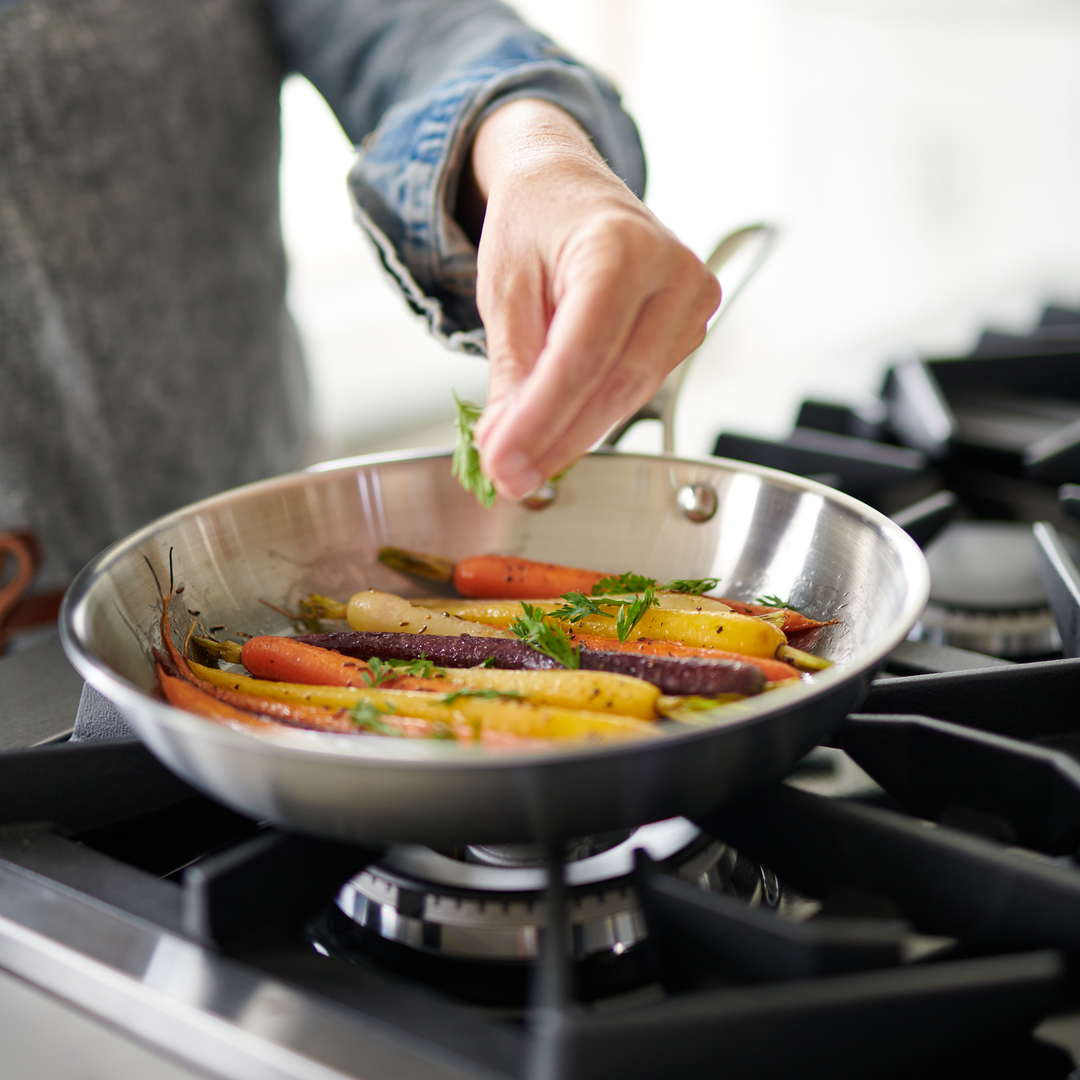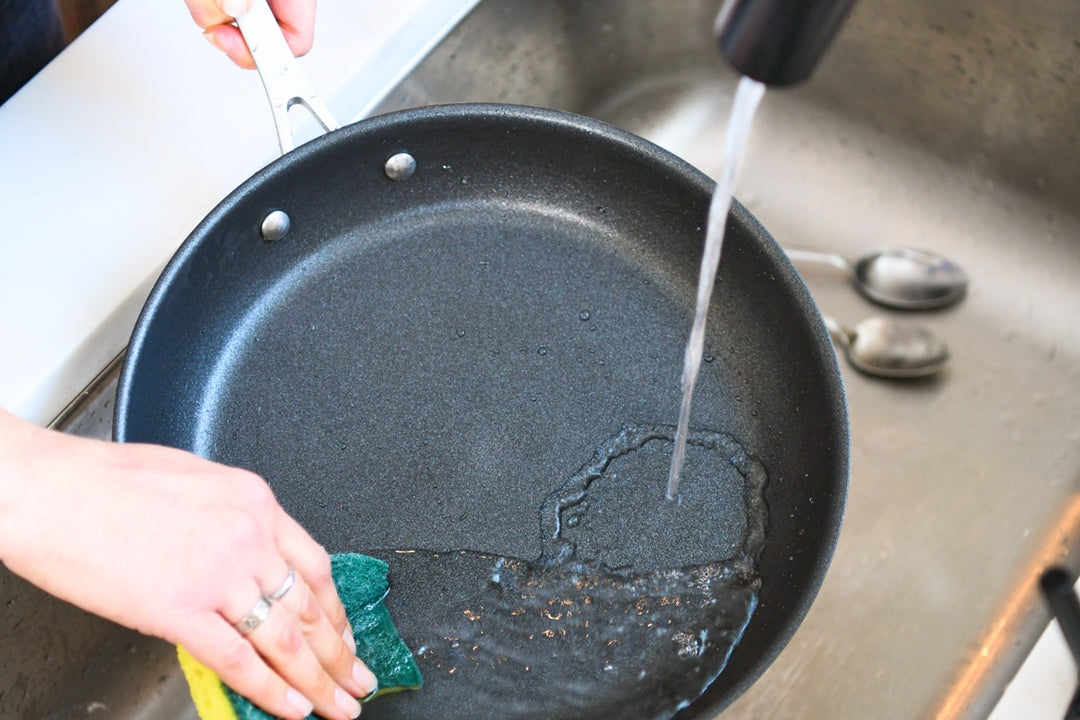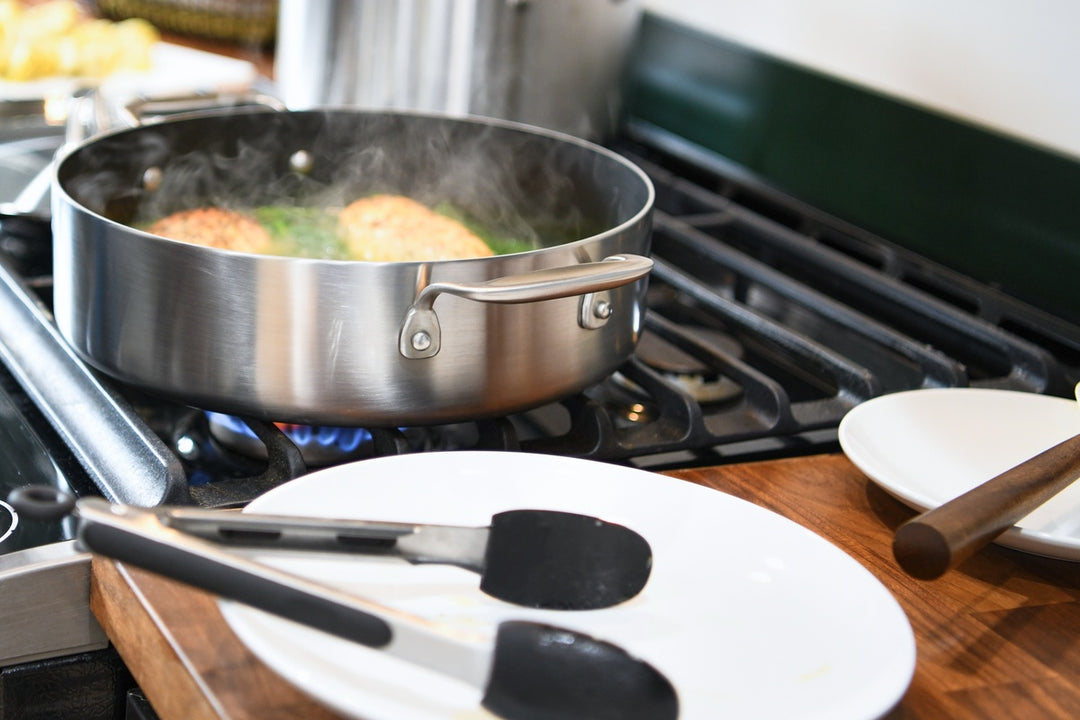Utensils and Stainless Steel: Guide to Selecting the Best Cooking Utensils for Stainless Steel Pots and Pans

One of the many advantages of stainless steel cookware is its reliability. In fact, it’s so durable that you can use utensils made from virtually any material without worry. We could just tell you to buy any old thing and leave it at that, but at American Kitchen we want to make sure you’re getting the most out of your pots and pans. Read on to discover which utensils are right for you.
| Pros | Cons | |
| Bamboo |
|
|
| Wood |
|
|
| Silicone |
|
|
| Metal |
|
|
| Nylon/Plastic |
|
|

Want to know more?
Bamboo Utensils
Not simply a renewable resource, bamboo is especially sustainable because it grows quickly and is harvested much like you would mow grass—the tops are cut off for use and the plant is allowed to continue growth. Durable and affordable, bamboo utensils should be hand washed to prevent them from soaking up moisture. They require infrequent oiling to keep them from becoming dry and brittle, making them more time consuming to maintain than other utensil materials.
Wooden Utensils
Available in a multitude of styles and types, wooden utensils remain classic in home kitchens. Prices can vary dramatically—elegant walnut or olive wood will cost you a pretty penny, while your basic beech wood is highly affordable. Wooden spoons and utensils are naturally germ and bacteria resistant and more environmentally friendly than some of your other choices. Being porous, they stain easily, are not dishwasher friendly, and must be oiled fairly regularly.
Silicone Utensils
Silicone has become an indispensable addition to kitchens in recent years. These utensils are extremely affordable, and the wide range of colors in which they are available means they’re compatible with virtually any décor. Heat resistant up to 650 °F, you rarely have to worry about melting or scorching. Their flexible nature makes them extremely durable but mind the knives! Silicone is easily damaged by sharp implements. Buyer beware: many products marketed as silicone are not in fact 100% silicone, reducing durability and heat resistance. To check if your silicone utensils contain fillers simply bend them a bit and look for the telltale white mark.
Metal Utensils
Metal utensils are a great choice if you’re looking for a heavy duty, super durable utensil. Though they tend to be pricier than other materials, they make up for cost with convenience. Easy to clean, dishwasher safe and low maintenance, they require little attention (though watch out for rust). They’re generally made to be thin enough to slide under delicate foods like piping hot cookies. Useful as they may be, if you’re trying to keep your stainless steel pots and pans looking pristine you may want to avoid metal. Though it won’t cause any real harm, metal utensils can cause superficial scratches on your gorgeous stainless steel.




